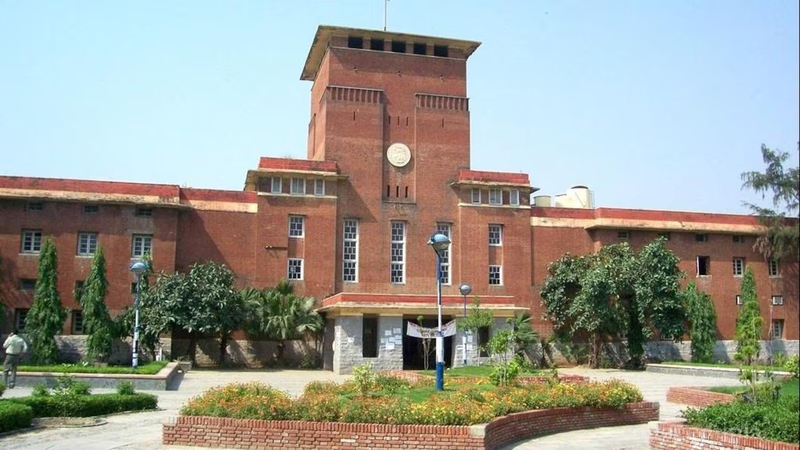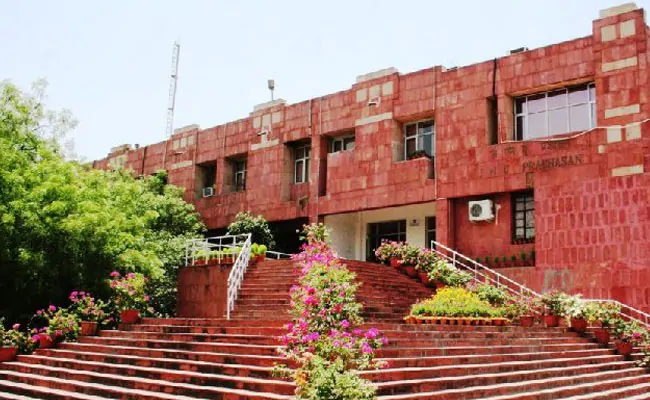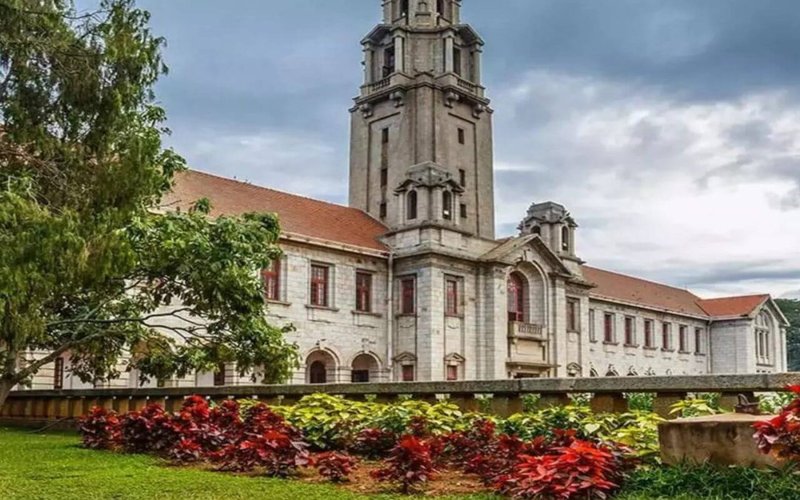Introduction
India is emerging as one of the top study destinations for international students, thanks to its diverse culture, world-class education system, and affordable tuition fees. Whether you’re pursuing an undergraduate or postgraduate degree, India offers a wide range of top courses in India across various fields, including engineering, business, medicine, law, and the arts.
This comprehensive guide will take you through the best universities in India for international students, admission procedures, campus life, and more.
Why India is a Top Study Destination for International Students

India is a hub of educational excellence, attracting thousands of international students each year. Here are some reasons why study in India:
- Affordable Education: Compared to Western countries, education in India is far more affordable, with a range of scholarships and financial aid options.
- Cultural Diversity: With over 2,000 distinct cultures, studying in India offers a unique blend of traditions, languages, and experiences that will enrich your personal growth.
- High-Quality Education: Indian universities offer internationally recognized degrees, with many institutions ranked among the top in the world for various disciplines.
- English Proficiency: A large number of universities in India offer English-taught programs, making it an ideal destination for international students from English-speaking countries.
Criteria for Selecting the Best Universities in India for International Students
When selecting a university in India, international students should consider the following factors:
- Accreditation and Ranking: Look for universities with strong national and international rankings, ensuring the quality of education.
- Course Variety: Choose universities offering top courses in India that align with your academic and career goals.
- Support for International Students: Some universities provide dedicated services like visa assistance, cultural integration programs, and housing facilities.
- Research Opportunities: If you are pursuing postgraduate studies, check if the university offers research programs and opportunities for internships and projects.
- Cultural Exposure: Universities in India are rich in cultural diversity, so consider the overall campus experience and extracurricular activities.
Best Universities in India for International Students

Here are some of the best universities in India for international students:
1. University of Delhi (DU)

The University of Delhi which also known as Delhi University which was founded in 1922 by an Act of Central Legislative Assembly.
One of India’s most prestigious institutions, Delhi University (DU) offers a wide variety of undergraduate, postgraduate, and doctoral programs in fields such as humanities, business, law, and social sciences. DU is well known for its diverse international student body, active campus life, and excellent academic environment.
2. Indian Institute of Technology (IIT) Bombay

IIT Bombay is one of the top engineering colleges in India and is recognized worldwide for its high academic standards. With cutting-edge research, state-of-the-art facilities, and a strong alumni network, IIT Bombay is a top choice for international students pursuing technology and engineering courses.
IIT Bombay is well-known for its five-year Inter-Disciplinary Dual-Degree Program (IDDDP), four-year Bachelor of Science (B.S.), two- or three-year Master of Technology (M.Tech.), and two- or three-year Master of Science (M.Sc.).
Additionally, it offers doctoral degrees in science, technology, engineering, and mathematics through its extensive graduate program. There are currently 15 academic departments, 20 more education centers, a school of excellence, and four interdisciplinary programs, such as industrial design and management.
3. Jawaharlal Nehru University (JNU)

Located in Delhi, India, Jawaharlal Nehru University is a public research university. Named for India's first prime minister, Jawaharlal Nehru, it was founded in 1969. The university is renowned for its top-notch faculty and focus on applied and social sciences in its research.
Known for its research-oriented programs, JNU is one of India’s most respected universities, offering courses in social sciences, international relations, and economics. It has a large number of international students, especially from countries in Asia, Africa, and the Middle East.
4. Indian Institute of Science (IISc) Bangalore

For higher education and research in science, engineering, design, and management, the Indian Institute of Science (IISc) is a public, deemed research university. It is situated in Karnataka's Bengaluru. The institute is also referred to locally as the Tata Institute because it was founded in 1909 with Jamsetji Tata's active support. In 1958, it received deemed university status, and in 2018, it was named an Institute of Eminence.
IISc Bangalore is a premier research institution in India that focuses on science and engineering. Known for its research excellence, IISc attracts students from around the globe, offering various postgraduate and PhD programs in fields like engineering, biological sciences, and physical sciences.
5. Amity University, Noida

The private research university Amity University, Noida (officially known as Amity University Uttar Pradesh) is situated in Noida, Uttar Pradesh, India. An act passed by the Uttar Pradesh State Legislature created it in 2005. It has branches abroad in Dubai and Tashkent in addition to campuses in India. The university is recognized by the University Grants Commission and accredited by the NAAC with grade 'A+'
Amity University is a popular choice for international students, offering a wide range of programs in fields like business, engineering, law, and media. With its global campuses and partnerships, Amity is highly sought after by students looking to gain international exposure.
6. Manipal Academy of Higher Education (MAHE)
Manipal University is one of the top private universities in India, renowned for its healthcare and engineering programs. It has a vibrant international student community, and its global partnerships provide students with valuable international exposure.
7. University of Mumbai
One of Mumbai's public state universities is the University of Mumbai. With more than 549,000 students enrolled on its campuses and affiliated colleges, it is among the biggest university systems globally. The university had 711 affiliated colleges as of 2013.
It was created in 1857 after Governor-General Lord Dalhousie received a message from Sir Charles Wood, President of the Board of Control. Science, business, and the arts are all covered in the courses offered.
The University of Mumbai is one of the oldest and most recognized universities in India. Offering undergraduate and postgraduate programs across disciplines like engineering, arts, law, and business, it attracts students from various countries, particularly from Southeast Asia and Africa.
9. Banaras Hindu University (BHU)
Founded in 1916, Banaras Hindu University (BHU), formerly known as Benares Hindu University, is a central, research, and collegiate university in Varanasi, Uttar Pradesh, India . The Central Hindu College, established in 1898 by Annie Besant, a theosophist and later leader of Indian Home Rule, was incorporated into the university.
Madan Mohan Malviya, who favored a more traditional Hinduism with its hereditary caste system over Besant's more theosophical one, marginalized Besant on the College's governing board by 1911. With the help of the lawyer Sunder Lal, the maharaja of Benares Prabhu Narayan Singh, and the maharaja of Darbhanga Rameshwar Singh, Malaviya founded the university five years later.
10. Ashoka University
Located in Sonipat, Haryana, Ashoka University is a private research university that offers a liberal education in the social sciences, natural sciences, and humanities. With more than 200 founders from a variety of industries, it was established in 2014 and is based on the collective philanthropy model.
11. Vellore Institute of Technology (VIT)
Located in Vellore, Tamil Nadu, India, Vellore Institute of Technology, or VIT, is a private deemed university.
There are 66 undergraduate, 58 graduate, 15 integrated, 2 research, and 2 M.Tech. industrial programs available at the institution. In addition to its campuses in Vellore and Chennai, it has three sister universities in India: Amaravati, Bhopal, Bengaluru, and an international campus in Mauritius. All of these sister universities are separate state private universities.
12. Symbiosis International University (SIU)
Symbiosis International University (SIU) has become a well-known name in management, law, and humanities. With campuses across India, SIU offers a wide range of undergraduate, postgraduate, and doctoral programs. SIU emphasizes a holistic education approach, focusing on both academic excellence and extracurricular involvement.
Admission to SIU’s top programs like the MBA is through the SNAP test, followed by group discussions and interviews. SIU is ideal for students looking for a balanced educational environment that nurtures personal development alongside academic achievements.
13. Tata Institute of Social Sciences (TISS)
The Tata Institute of Social Sciences (TISS) is renowned for its contribution to social sciences, public policy, and human development studies. The university offers postgraduate and doctoral programs in fields like social work, public health, rural development, and human rights. TISS is well-known for its research contributions and involvement in addressing societal issues through education and policy advocacy.
The TISS-NET (National Entrance Test) serves as the entry point for students, followed by personal interviews and group discussions. If you're passionate about social work or public policy, TISS offers unparalleled opportunities.
14. Indian Statistical Institute (ISI)
The Indian Statistical Institute (ISI) is a prestigious institution specializing in statistics, mathematics, and related fields. With campuses in Kolkata, Delhi, Bangalore, Chennai, and Tezpur, ISI offers undergraduate, postgraduate, and doctoral degrees in statistics, computer science, and quality management.
The institute is renowned for its academic rigor and close ties with industries and government sectors. Admission to ISI is extremely competitive, requiring applicants to clear a challenging entrance exam followed by an interview. Students at ISI are often equipped for careers in academia, research, data science, and analytics.
15. School of Business (ISB)
The Indian School of Business (ISB), with campuses in Hyderabad and Mohali, is one of the top business schools in India. The flagship Post Graduate Program in Management (PGP) is internationally recognized, offering a rigorous academic environment along with real-world work experience.
ISB maintains strong ties with the industry and provides ample opportunities for internships, international exposure, and networking. Admission is based on GMAT or GRE scores, followed by an elaborate application process, including essays, recommendations, and interviews. ISB is the ideal choice for future business leaders seeking a transformative MBA experience.
Popular Courses Offered to International Students in India
India offers a wide range of courses that are internationally recognized, providing students with a solid foundation in various fields. Thanks to its globally ranked institutions and affordable tuition fees, international students are increasingly choosing India for higher education. The top courses in India for international students are designed to meet global standards and are delivered by experienced faculty at the Best Universities in India for International Students.
Engineering & Technology
India is home to some of the most prestigious engineering institutions, including the Indian Institutes of Technology (IITs) and National Institutes of Technology (NITs). These institutes offer specializations such as Computer Science, Mechanical Engineering, Civil Engineering, and Electrical Engineering. Known for academic rigor and strong industry partnerships, these programs attract students from all over the world. The best universities in India for international students in the engineering domain offer access to cutting-edge labs, internships, and international exchange programs.
Business & Management
Courses in MBA, BBA, Finance, Marketing, and Entrepreneurship are among the most popular choices for international students. India boasts world-class business schools like the Indian Institutes of Management (IIMs), XLRI, and Symbiosis Institute of Business Management. These institutes are known for their strong corporate ties and high placement rates. International students enrolling in these programs benefit from a global curriculum and real-world exposure, making them highly employable upon graduation. Many of these institutions are listed among the best universities in India for international students for business studies.
Medicine & Health Sciences
India’s medical education system is one of the most affordable and respected globally. Courses like MBBS, BDS, Nursing, Public Health, and Biotechnology are offered by top medical institutions such as AIIMS, JIPMER, and state medical universities. These programs combine academic learning with intensive clinical training, allowing students to gain hands-on experience in hospitals and healthcare settings. The best universities in India for international students in the medical field also offer specialized guidance and support services for international applicants.
Social Sciences & Humanities
For students interested in Psychology, Sociology, Political Science, or International Relations, India presents a unique learning environment influenced by its diverse culture and vibrant democracy. Leading institutions like Delhi University, Jawaharlal Nehru University (JNU), and Tata Institute of Social Sciences (TISS) offer these programs. These universities are widely considered among the best universities in India for international students, offering holistic education, cross-cultural experiences, and rich research opportunities.
Law
Legal studies in India are growing in popularity among international students, especially in areas like LLB, LLM, International Law, and Corporate Law. The National Law Universities (NLUs) and reputed private institutions provide a comprehensive legal education based on both Indian and international frameworks. The best universities in India for international students in law offer strong academic mentorship, moot court experiences, and networking opportunities with legal professionals and scholars.
Admission Process for International Students in Indian Universities
The admission process for international students varies by university but typically includes:
- Application Form: Fill out the online application form available on the university website.
- Documents Required: Passport copy, academic transcripts, English language proficiency test scores (like IELTS or TOEFL), and a valid student visa.
- Entrance Exams: Some universities may require students to take entrance exams like JEE (for engineering) or NEET (for medical courses).
- Interview or Group Discussion: Some institutions may conduct interviews or group discussions as part of the selection process.
Cost of Studying and Living in India for International Students
The cost of studying in India is significantly lower than in Western countries. On average, tuition fees range from INR 50,000 to INR 2,00,000 per year for undergraduate programs, depending on the university and course. Living costs vary by city, with major cities like Delhi, Mumbai, and Bengaluru being more expensive.
English-Taught Programs for International Students in India
Many universities in India offer English-taught programs, making it easier for international students to study in India. These programs cover a wide range of fields such as engineering, business, social sciences, and humanities, ensuring that language is not a barrier to your education.
Campus Life and Cultural Experiences for International Students
Studying in India offers a rich cultural experience. From exploring historical sites to attending festivals, there are numerous ways to immerse yourself in Indian culture. Universities often organize cultural events, sports activities, and student exchanges, ensuring a vibrant and enriching campus life.
Visa Requirements for International Students Studying in India
International students need a Student Visa to study in India. The visa process typically involves submitting an application form, paying the visa fee, providing documents like an admission letter from an Indian university, passport copies, and financial statements proving your ability to support your studies in India.
Conclusion: Choosing the Best University in India for Your International Journey
Choosing the best university in India for international students depends on your field of study, budget, and career goals. With its affordable education, diverse culture, and world-class institutions, India is a top destination for international students looking to expand their horizons and receive an exceptional education.
Additionally, many Indian universities offer English-taught programs, globally recognized degrees, and strong industry connections. From engineering and medicine to arts and humanities, students can find tailored programs to match their aspirations. India's vibrant campus life and academic support make it an enriching place to study and grow.
FAQ on Best Universities in India For International Students
1. Which university in India is best for international students?
India has several prestigious institutions that attract international students, such as the Indian Institute of Technology (IIT), Indian Institute of Management (IIM), Jawaharlal Nehru University (JNU), and University of Delhi. These universities offer globally recognized programs and have a rich cultural and academic diversity that caters to international students.
2. Which is the best university for international studies in India?
Jawaharlal Nehru University (JNU) is renowned for its exceptional international studies program. Offering undergraduate, postgraduate, and doctoral programs in areas like international relations, diplomacy, and global studies, JNU is considered one of the top choices for international students in India.
3. What is the top university in India?
The Indian Institute of Technology (IIT), particularly IIT Bombay, is often considered the top university in India due to its world-class infrastructure, cutting-edge research, and high employability of graduates. IIT Bombay is frequently ranked at the top in global rankings, making it a top destination for both domestic and international students.
4. Is India a good place to study for international students?
India is an increasingly popular destination for international students due to its rich culture, affordable tuition fees, and diverse academic programs. The country offers a wide range of undergraduate and postgraduate programs in fields such as engineering, medicine, humanities, and business, among others. The affordability of education and living costs makes India an attractive choice.
5. Where do most foreigners study in India?
Foreign students primarily choose cities like New Delhi, Bangalore, Mumbai, and Chennai due to the presence of top universities and good living standards. These cities are well-connected with vibrant cultural, educational, and professional opportunities, making them ideal destinations for foreign students.
6. Why studying in India is better than abroad?
Studying in India offers a unique blend of affordable education, rich cultural heritage, and high-quality universities. The country also offers numerous scholarships and a low cost of living compared to countries in the West. The multicultural environment and opportunities for networking in diverse fields make India a standout study destination.
7. Which part of India is best for study?
South India (cities like Chennai, Bangalore, and Hyderabad) is often considered the best region for studies due to the presence of top universities and a favorable climate. However, cities in North India like New Delhi, Chandigarh, and Jaipur are also prominent choices, offering diverse academic opportunities.
8. Which country is cheaper than India to study?
Countries like Nepal, Bangladesh, and Vietnam offer lower tuition fees compared to India. However, India stands out due to its diverse educational opportunities, better infrastructure, and relatively low cost of living compared to Western countries like the USA, UK, and Australia.\
9. Which is the toughest university in India?
The Indian Institutes of Technology (IITs), especially IIT Bombay, IIT Delhi, and IIT Kanpur, are often considered the toughest universities in India due to their rigorous admission process (JEE Advanced) and high academic standards.





